FIELD, BRITISH COLUMBIA, CANADA–I stepped on Paleontological Holy Ground when I visited the Burgess Shale earlier this week. It is often cited as the most important fossil locality ever. I felt the historical as well as the scientific vibrations in the Walcott Quarry, the site where the extraordinary Charles Walcott began his explorations of the unit in 1909.
There are numerous websites illustrating the famous Burgess Shale Fauna. I’ll just share some of the favorite fossils I found. (We could pick up and examine any fossil, but collecting, of course, is strictly forbidden.)
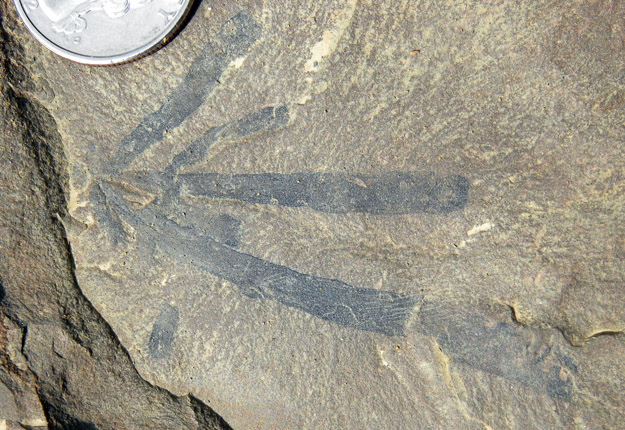
The humble sponge Vauxia. I like the less charismatic taxa in the Burgess Shale. The fancy arthropods get plenty of love!
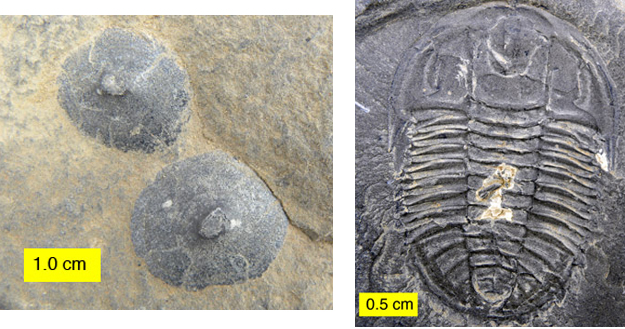
The primitive mollusc Scenella on the left and a trilobite on the right. The Burgess Shale fauna has plenty of skeletonized fauna along with the soft-bodied forms.



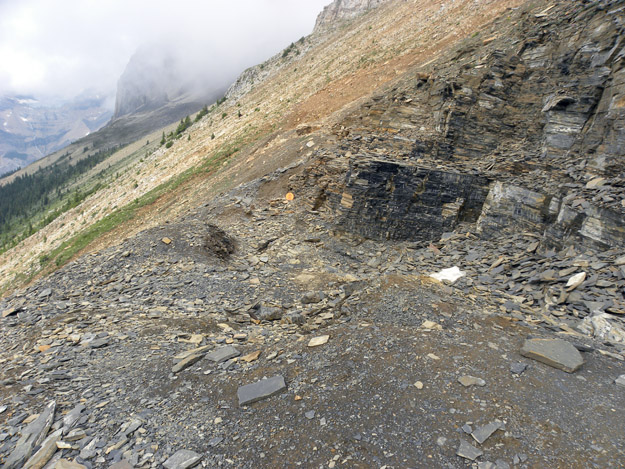
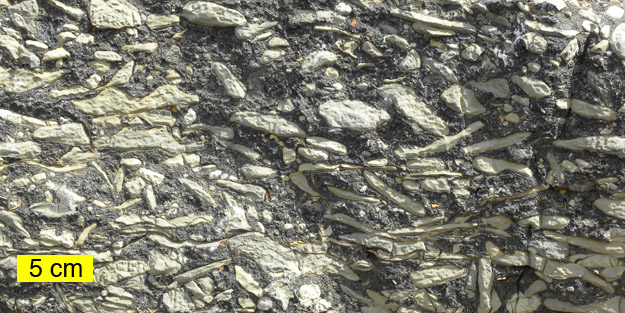
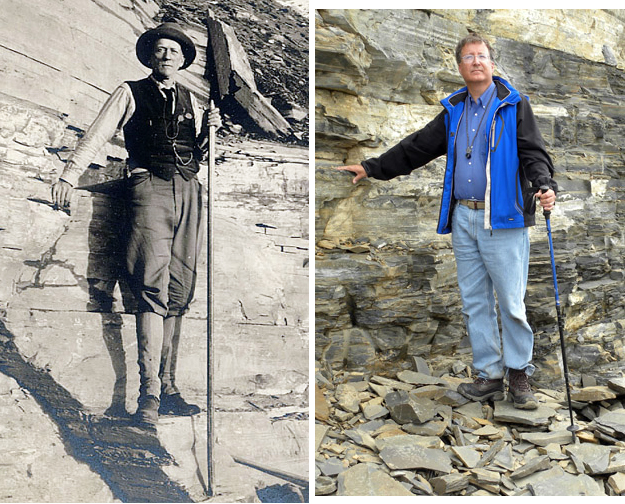
Pingback: Wooster Geologists » Blog Archive » The Messel Fossil Pit: A world-class experience
Pingback: » Developing Marine Ecosystems (September 27 – October 1) History of Life course at The College of Wooster
Pingback: » Arthropods: The Dominant Phylum Invertebrate Paleontology at Wooster
Pingback: Developing Marine Ecosystems (February 14-18) | History of Life course at The College of Wooster
Pingback: Arthropods: The Dominant Phylum (November 8 & 10) | Invertebrate Paleontology at Wooster
Pingback: Arthropods (November 15 & 17) | Invertebrate Paleontology at Wooster
Pingback: Developing marine ecosystems (February 13-17) | History of Life course at The College of Wooster
Pingback: Developing Marine Ecosystems (September 24-28) | History of Life course at The College of Wooster
Pingback: Arthropods: The Dominant Phylum (November 8) | Invertebrate Paleontology at Wooster
Pingback: Developing Marine Ecosystems (February 11-15) | History of Life course at The College of Wooster
Pingback: Developing Marine Ecosystems (September 23-27) | History of Life course at The College of Wooster
Pingback: Arthropods: The Dominant Phylum (November 5 & 7) | Invertebrate Paleontology at Wooster
Pingback: Developing Marine Ecosystems (September 15-19) | History of Life course at The College of Wooster
Pingback: Arthropods: The Dominant Phylum (November 4 & 6) | Invertebrate Paleontology at Wooster
Pingback: Developing Marine Ecosystems (February 9 & 11) | History of Life course at The College of Wooster
Pingback: Arthropods: The Dominant Phylum (November 10 & 12) | Invertebrate Paleontology at Wooster
Pingback: Developing Marine Ecosystems (February 15-19) | History of Life course at The College of Wooster